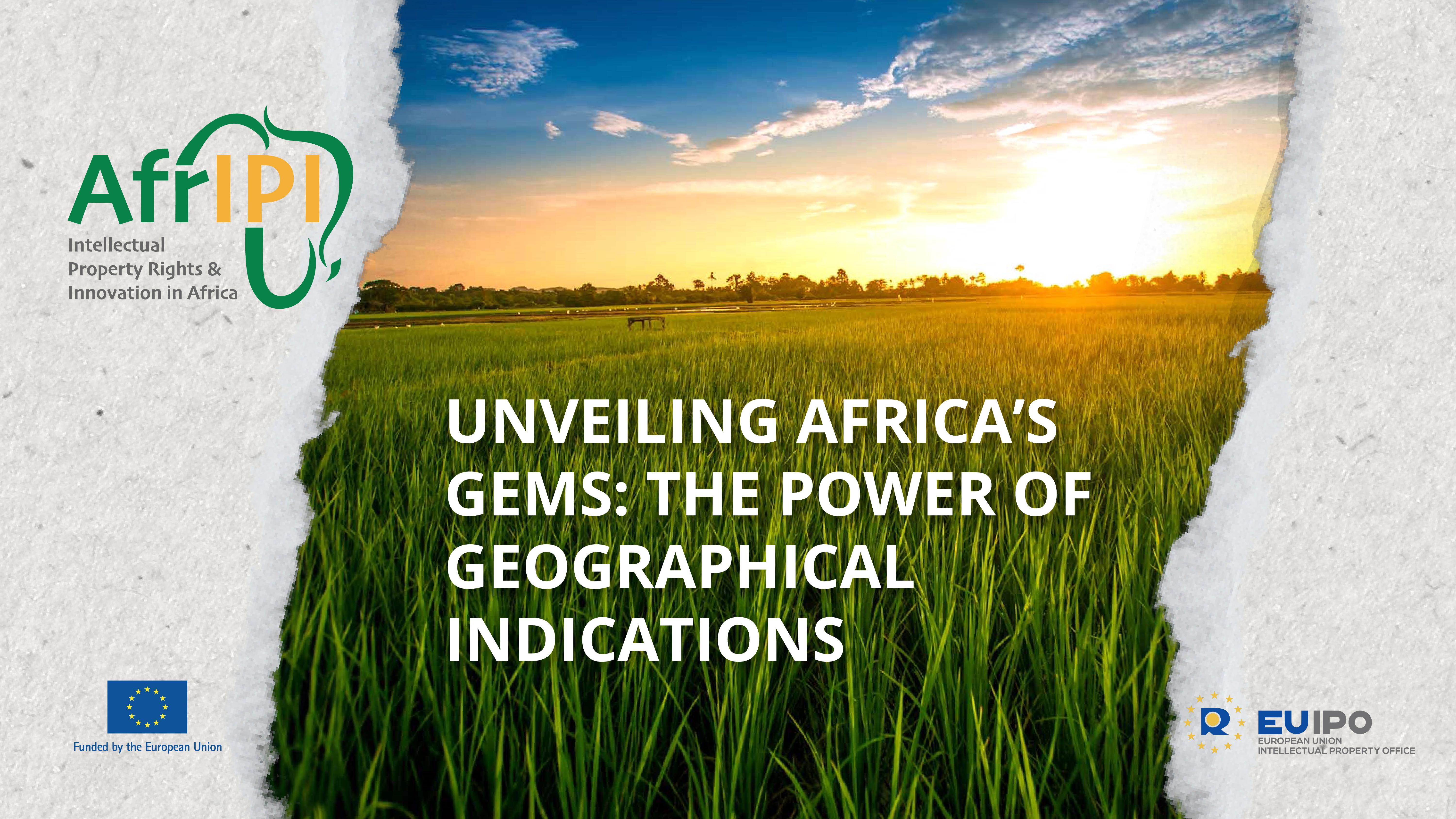Unveiling Africa’s Gems: the Power of Geographical Indications
Africa boasts a dazzling array of products, from the rich Harar Yirgacheffe Sidamo coffee of Ethiopia to the intricate Taita baskets of Kenya. But these treasures face a challenge: copycats trying to exploit their reputation. This is where geographical indications (GIs) come in, shielding Africa’s most unique offerings.
GIs: guardians of African excellence
A GI is a label that links a product’s unique qualities to its geographical origin. It is a certificate of authenticity that ensures the distinctive taste of Namibian Ondungwa watermelon or the vibrant colours of Malian Bogolanfini mud cloth come from where they claim. GIs are like storytellers, whispering tales of tradition, local knowledge and the unique characteristics of a place woven into every product.
Why GIs matter in Africa
For African producers, GIs are game changers.
- Empowering African communities and protecting livelihoods: GIs prevent imitators from stealing genuine products’ shine (and market share). This empowers farmers, artisans and communities who have invested generations of knowledge into perfecting their craft. GIs indicate a strong link between the quality of a product and its place of origin. This benefits local communities by preserving traditional knowledge and practices, promoting local consumption and fostering job creation. Imagine a GI for Ghanaian Kente cloth, supporting weavers and keeping this cultural heritage alive.
- Building stronger African economies: GIs act as a powerful marketing tool. Products with GI recognition often command premium prices, increasing exports and revenue for local economies. Rooibos tea from South Africa is a prime example, fetching higher prices due to its GI status.
- Informing savvy consumers: GIs empower African consumers to make informed choices. Recognising a GI label allows them to be confident they are getting an authentic, high-quality product that supports African producers.
- Celebrating African diversity: GIs showcase the continent’s rich tapestry of flavours and craftsmanship. From the smoky aroma of Poivre de Penja (pepper) from Cameroon to the delicate handwoven Boule Loin Cloth from Ivory Coast, GIs celebrate the unique character of each African region.
GIs beyond food and beverages
GIs are not limited to just food and drinks. They can encompass a wide range of African products, from the intricate beadwork of the Maasai people in Kenya to the handwoven baskets of Rwanda, all reflecting the unique skills and materials of their places of origin.
Understanding GIs allows you to appreciate the rich tapestry of African traditions and expertise woven into everyday products. It is a way to celebrate the continent’s unique character, one sip of authentic coffee or a beautiful piece of hand-crafted art at a time.
A continent rich in GIs
GIs have always existed but the interest for their protection came recently for different reasons, including the fact that countries are moving from resource-based to knowledge-based economies.
Africa is waking up its GI potential. From the delicate aroma of Kenya’s White Highlands coffee to the exquisite craftsmanship of Rwanda’s Agaseke woven baskets, the continent is brimming with GI-worthy products. To reinforce this momentum, the African Union has endorsed a Continental Strategy for Geographical Indications (2018-2023) recognising the potential of GIs for the continent’s development. Countries like Morocco (with its Argane oil) and Tunisia (known for its Dattes Deglet Nour de Nefzaoua) are already reaping the benefits.
The road ahead
Raising awareness about GIs and building robust legal frameworks are crucial steps in this journey. With continued efforts, GIs can become a tool to empower African producers, celebrating the continent’s rich heritage and ensuring that the world recognises Africa’s precious gems.
Become a part of the story
By understanding GIs, you become a champion for African products. Seek out those proudly displaying GI labels, like the rich Ethiopian Yirgacheffe coffee or handwoven textiles from Burkina Faso (Faso Dan Fani). These labels are not just a mark of origin, but a passport to a deeper connection. Choose a GI-labelled product and you are not just making a purchase; you are supporting a community, preserving a tradition, celebrating the unique flavours of Africa and becoming a custodian of a vibrant heritage.
